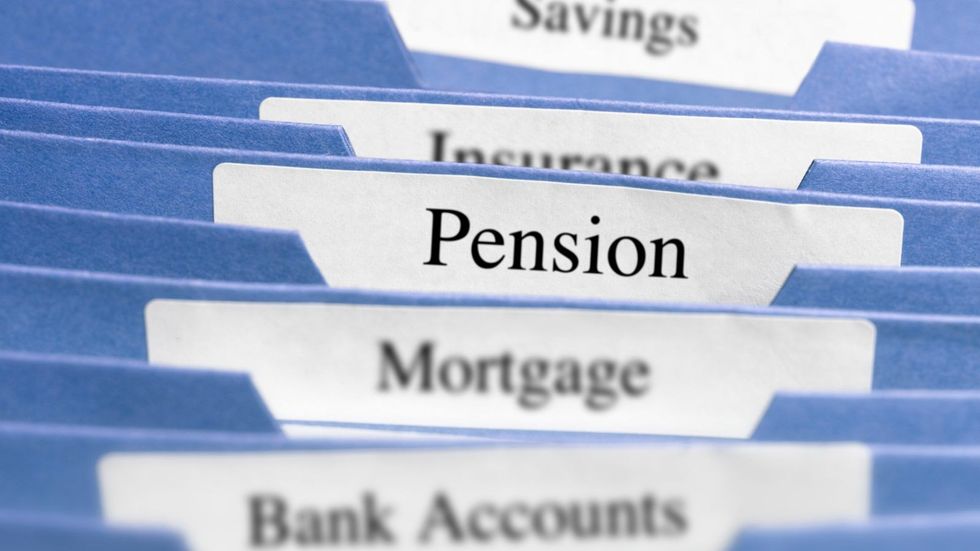State pension triple lock could hit £13,200 in the next five years under the Tories

Both the Conservatives and Labour have committed to keeping the triple lock
| GETTY
Both the Conservatives and Labour have committed to keeping the triple lock
Don't Miss
Most Read
Latest
Following today’s inflation figures, a pensions expert has set out what the current Government is predicting for the state pension and Triple Lock over the next five years.
Under the calculations, the state pension could hit £13,000 a year by 2029/2030 - just five years time.
Under the triple lock system, the state pension increases each April depending on the rate of inflation, average earnings or 2.5 per cent– whichever is highest.
Both the Conservatives and Labour have committed to keeping the triple lock.
As part of their pre-General Election campaign, the Conservatives have also promised to raise the tax-free state pension allowance in what they have called a "Triple Lock Plus".
Under the plans, the personal allowance for pensioners would increase by at least 2.5 per cent, or in line with the highest of earnings or inflation, meaning fewer would have to pay income tax on it.

As part of their pre General Election campaign, the Conservatives have also promised to raise the tax-free state pension allowance
| GETTYSteven Cameron, pensions director at Aegon, set out what the current Government is predicting for the state pension and Triple Lock over the next five years based "on current forecasts".
He said: "For next April, they predict a £430 increase from £11,540 to £11,970, equal to 3.7 per cent. Given today’s announcement that inflation sat at two per cent for May, it’s very likely the Triple Lock will be based on earnings growth.
"This currently stands at 5.9 per cent, but it’s the figure published in September which is used, and the implied manifesto expectation is this will fall to 3.7 per cent by then.
"The Conservatives also predict the state pension will have risen to £13,200 in 5 years’ time, come 2029/30. While not specified in their manifesto, Aegon calculations show that this means they are assuming the minimum 2.5 per cent increase in the following four years.
"In other words, current forecasts are that both inflation and earnings growth will not exceed the 2.5 per cent per year guaranteed increase over this period.
"On that basis, the full state pension would equal £11,970 in April 2025, £12,269 in April 2026, £12,576 in April 2027, and £12,890 in April 2028, before reaching the £13,200 in April 2029.
"These figures are based on the assumption that inflation will remain at or below 2.5 per cent throughout this period. And while the increases are far below the bumper boosts of 10.1 per cent and 8.7 per cent in April 2023 and 2024 respectively, when inflation and earnings growth were skyrocketing due to exceptional circumstances, this return to more typical Triple Lock increases will still allow state pensioners to at least retain their purchasing power."
Labour has not set out whether it would make a similar move to the Triple Lock Plus but said the Conservatives' plan was not "credible".
The proposed tax break for pensioners is "simply a reversal of a tax increase that the Conservatives proposed", the Institute for Fiscal Studies director Paul Johnson has said.
The triple lock is a popular policy with older voters. According to a survey by My Pension Expert of 1,295 UK adults over 40, more than half (51 per cent) say a political party’s commitment to maintaining the triple lock would significantly influence their voting intentions at the next General Election.
More than half (57 per cent) also feel that if the state pension triple lock was scrapped it would be damaging to their financial plans for retirement.
LATEST DEVELOPMENTS:
However, critics say the policy is aimless and vulnerable to big increases that are out of kilter with the rest of the population. It is also becoming increasingly expensive - and unaffordable.
Tom Selby, director of public policy at AJ Bell, argued: "As the real value of the state pension rises as a result of the triple lock, it also increases the likelihood of planned state pension age hikes being accelerated to balance the books, creating both uncertainty and the potential for intergenerational unfairness."










